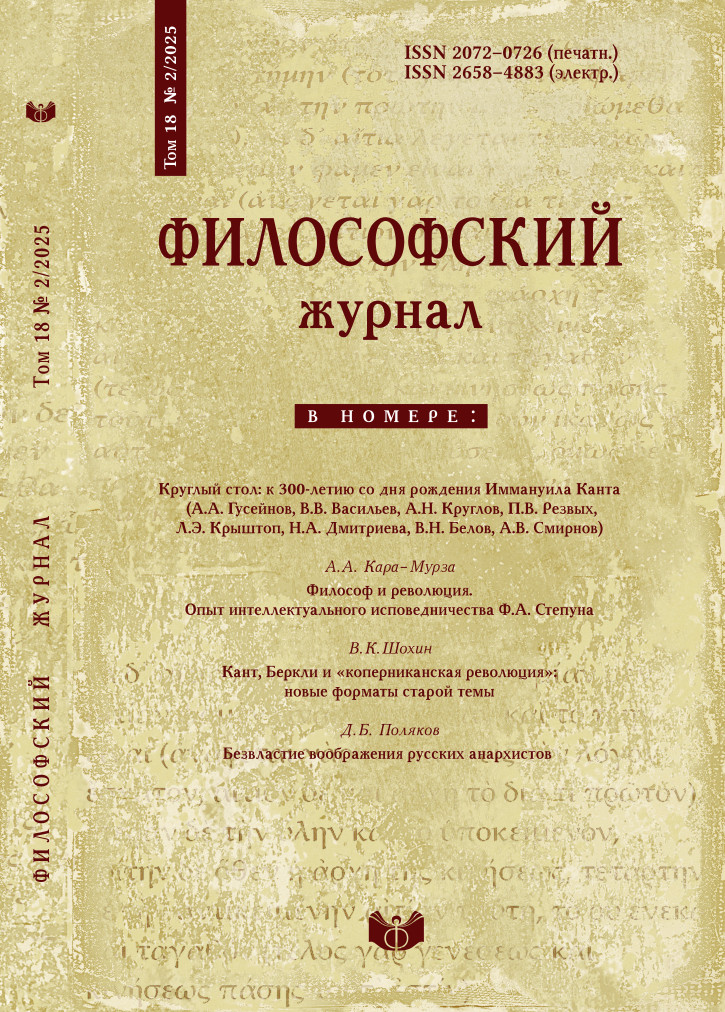Enigmas of consciousness and their Kantian solutions
DOI:
https://doi.org/10.21146/2072-0726-2025-18-2-70-82Keywords:
Kant, a priori, big culture, tabula rasa, svyaznost’, tselostnost’Abstract
The line of investigation of consciousness through consciousness itself in European philosophy is represented by the doctrines elaborated as an answer to the question: “What in my consciousness is determined by consciousness itself, and not by the world?” The names of Descartes, Kant, and Husserl mark the most significant moments in the development of this line. This line is opposed to the tabula rasa line represented today by many strands of analytic philosophy, semiotics, neurophilosophy, and neuroscience. The first line is preferable insofar as consciousness investigates itself, and thus it is incorrect to ignore the fact that consciousness poses itself as its own premise to its investigation in the form of at least the tools of investigation (basic categories and logical laws). Kantian apriorism represents the most serious attempt in history to delineate the range of presuppositional tools that are inevitably present, in a stripped-down or direct form, in any discourse on consciousness. The most significant shortcoming of the Kantian approach is that it is content-based: the principles of cognition a priori are formulated as a set of content-based theses. Such an approach is not immune to the fact that its results may turn out to be incomplete, and, most importantly, that it presents as an a priori principle what in fact has an a posteriori character and is borrowed from the cognitive experience of only one of the big cultures of humankind, and thus does not have a universal and strictly obligatory character, i.e. it cannot be an a priori principle in the Kantian sense. This is what the development of science after Kant has proved: non-Euclidean systems of geometry, quantum mechanics and the theory of relativity have shown the variability of what Kant considered invariant a priori principles justifying mathematics and natural science, and philosophical study of non-Western civilizations has revealed the variability of sets of a priori principles of cognition developed by big cultures of humankind. The future elaboration of the Kantian project is framed as: 1) drawing distinction between the absolutely-universal (the invariant human a priori cognitive ability) and the universal-within-big-cultures (variants of the realization of this ability, setting the grounds for the unfolding of big cultures, a priori within their limits), 2) understanding the absolutely-universal a priori not as content-based theses, but as the ability of svyaznost’ (coherence and connectivity) – the key a priori ability of human consciousness, independent of the world, 3) investigating the process of sense-positing as the realization of the ability of svyaznost’ in all nodes of the epistemic chain: sensual perception, language, and reasoning.






